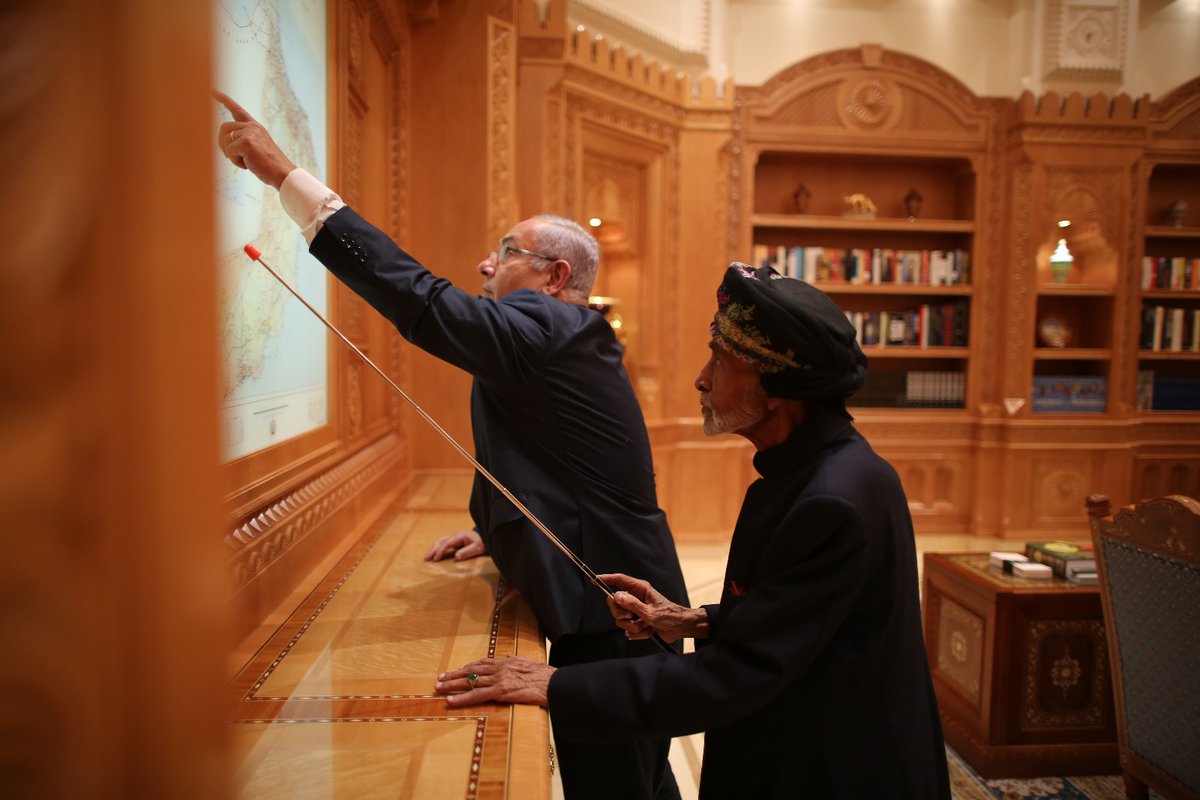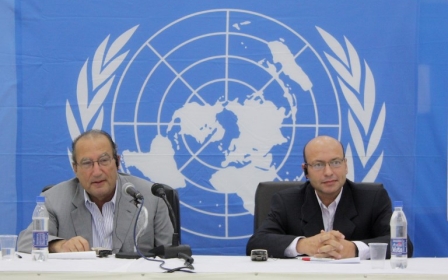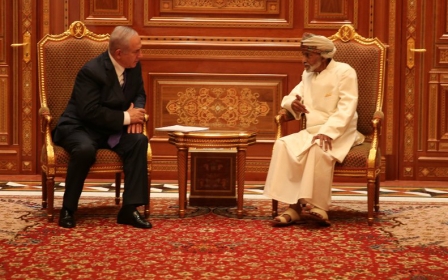In Palestine, a growing sense of alienation pervades society

The current world offers countless examples of alienation, but this phenomenon is perhaps especially commonplace in Palestine.
I recently observed a prestigious professional meeting, in which a well-regarded woman dared to defend her opinion with technical data and logic against the meeting’s "boss" and the massive wall of silence his presence evoked - the boss being not a technical person himself, but someone with political power.
Trying to discredit her remarks, the boss said: "This is Abu Antar talking!" He was referring to a male character within the Arab media. Abu Antar is a popular, muscular and defiant gangster. The comment by the boss can be understood as meaning it is not "womanly" to be defiant and protest.
The woman responded: "Only someone unsure of his own masculinity would need to utter such a comment."
The need to belong
New MEE newsletter: Jerusalem Dispatch
Sign up to get the latest insights and analysis on Israel-Palestine, alongside Turkey Unpacked and other MEE newsletters
Those present - including a number of women appointed merely to appease the project donor’s gender policy, and who fill the role of Amen-sayers to whatever the boss happens to utter - promptly sighed in collective disapproval at the woman’s shrewd reply.
In my discipline of psychiatry, the need to belong is placed high on Maslow’s hierarchy. Group identity is viewed by psychologist Erik Erikson as a crucial psychosocial developmental stage, without which people feel alienated.
Alienation has been assumed to be the root cause of mass shootings in the US, a motivator for people to follow the Islamic State, and a driver of risky migration practices.
Recent events have accelerated and generalised Palestinians’ sense of alienation from the traditionally supportive Arab-Muslim community
The phenomenon of alienation represents an intersection of the personal and the collective, the psychological and the sociological. It includes feelings of powerlessness, meaninglessness and self-estrangement.
Alienation can be generated by design: in Palestine, pervasive political helplessness and economic misery alienates many from one another. "I rarely see my children," noted a labourer at an Israeli border checkpoint. "By the time I return home, they are already in bed getting their rest for school the next morning."
Palestinians are alienated from their land and from international consciousness. Forgotten is United Nations General Assembly Resolution 3379, which identified Zionism as a form of racism. Instead, the international consensus is moving towards new laws criminalising non-violent opposition to Zionism as “anti-semitism”.
Reframing enemies and friends
Recent events have accelerated and generalised Palestinians’ sense of alienation from the traditionally supportive Arab-Muslim community.
The latest Warsaw conference on Middle East "peace", attended by Arab leaders and Israel's Benjamin Netanyahu, reframed enemies and friends, resulting in the Gulf states crowning Israel as a leader in their fight against Iran and ignoring the occupation of Palestine.
US policy in the Middle East is based on efforts to normalise relations between Israel and the Arab world, fuelled by the rise of Arab leaders who are shamelessly willing to sacrifice the Palestinian cause, while the Arab people are exhausted in revolutionary struggles against their leaders.
All of these developments are changing norms and further isolating Palestinians.
Rapid growth in the relationship between Israel and Arab governments, especially in the Gulf, has been manifested through official visits by senior Israeli officials to Arab countries, such as Prime Minister Netanyahu’s visit to Oman last November. There has also been an expansion of informal meetings and a flurry of economic activity between Arab and Israeli companies.
All of this is accompanied by the artificial support of electronic flies on social media, aiming to create a false public opinion in support of normalisation in Arab society - an accelerated process of spiritual and symbolic degradation.
In reality, this transformation is limited to the leaders and political elites in the Arab world. Ordinary citizens and public opinion steadfastly oppose normalisation with Israel.
Grassroots movements on the Arab street, and their aspirations to be freed from regime control, reveal the degree to which public opinion has been falsified.
Backing oppressive regimes
Israel is the enemy of the Arab people wherever they may be, backing their oppressive regimes, monitoring their activists and aiding the process of human rights violations. For example, an Israeli company specialising in cyber-espionage reportedly negotiated a multimillion-dollar deal with Saudi Arabia for technology that could be used to hack dissidents’ mobile phones.
The Palestinian leadership, which allows for security coordination with Israel, has paved the way for the normalisation between Israel and Arab regimes. This disappointment is exacerbated by the widespread polarisation, corruption and nepotism practised by Palestinian leaders and institutions.
Yet, there are still examples of resistance to this alienation.
A photo recently emerged of Hebron’s police chief helping to change a flat tyre on an Israeli military jeep, sparking widespread rage among Palestinians and eventually leading to the chief’s suspension.
These are difficult times, indeed. The alienated are many and silent. But we shall hold on; we will not disappear.
We shall speak about the ills of alienation. Sometimes this will cause further pain, and sometimes it will expose the collaborators - but this is what it takes to walk the road of freedom, for our minds and for our homeland.
The views expressed in this article belong to the author and do not necessarily reflect the editorial policy of Middle East Eye.
Middle East Eye delivers independent and unrivalled coverage and analysis of the Middle East, North Africa and beyond. To learn more about republishing this content and the associated fees, please fill out this form. More about MEE can be found here.







